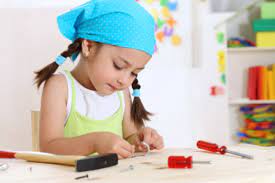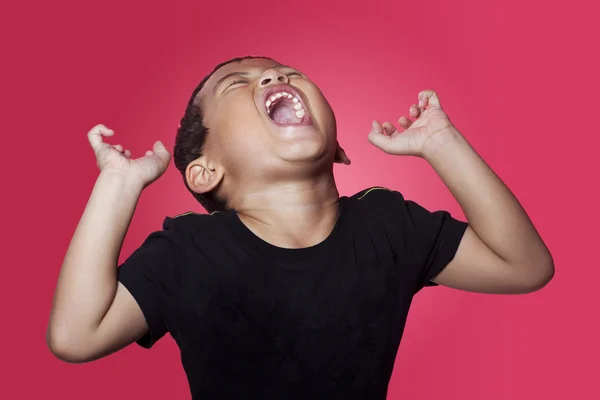Gifted children are no exception to the rule that those who are high in intelligence or creativity are more prone to mental health problems. The fact is that many gifted children are diagnosed with mental health problems at an earlier age than their non-gifted peers.
It’s important for parents of gifted children to be aware of these risks and to seek help if their child shows any signs of mental health challenges. Treatment can include therapy, medication, or a combination of both.
In this article, we are going to answer the following questions: why does a gifted experience mental health challenges, Do gifted children have good memories? Do gifted children have special needs? and others

Why does a gifted child have more mental health challenges?
One of the commonest mental health problems among gifted children is anxiety. They usually exhibit excessive worry, tension, and fearfulness. Gifted children, most times, may have difficulty focusing, concentrating, and completing tasks.
It is very common for gifted children to suffer from depression, which may be caused by intense feelings of loneliness, frustration, and feeling misunderstood. They also find it difficult to handle stress and negative emotions.
Do gifted children have good memories?
There may be different answers to this question since every child’s memories are different. However, there are some general features that may be true about good memories for gifted children. First, they may be more creative and imaginative than an average child. This means that they may be more likely to remember things. They are likely to have more advantageous opportunities to learn and explore new things, which could result in greater memories. Finally, they may be more likely to focus on the positive aspects of life and to remember happy moments more vividly. All of these might lead to good memories for gifted children and also the reason why some of them suffer from mental health challenges.
Do gifted children have special needs?
Gifted children often have special needs that go beyond the needs of most children. Some of the common special needs of gifted children include:
– The need for attention and stimulation
– A more specialized and flexible curriculum
– Increased need for organization
– A need for focus and concentration
– Absolute need for solitude
-Creativity need
– The need for challenge
– Increased need for emotional support
If you are a guardian of a gifted child, it is important to understand your child’s peculiar needs and to seek out the appropriate techniques to help meet those needs. Gifted children often benefit from specialized education and support, so it is important to be proactive in finding those resources and to communicate with the school and other agencies that may be responsible for the child’s care.

What personality types are gifted?
There are many different personality types, but there are a few personality types that are particularly gifted. Here are the five types of personality that are particularly gifted:
1. The Intuitive Personality. Intuitive personalities are gifted with strong intuition. They are able to see things that other people cannot see, and they are able to understand complex concepts quickly. They are also able to quickly make decisions based on their intuition.
2. The Pre-Opinionated Personality. Pre-opinionated personalities are gifted with strong opinions. They are able to quickly form opinions around issues, and this personality type sticks to those opinions because it appears realistic.
3. The Artistic Personality. They are able to create beautiful things, and they are also able to see the beauty in things that other people do not see.
4. The Analytical Personality. They are able to quickly analyze and evaluate issues and come up with valuable conclusions faster than their counterparts.
What happens to gifted children when they grow up?
When gifted children grow up, many of them face mental health challenges as they pursue careers. Some pursue their careers in the arts, science, or mathematics. Others may have successful careers in business or government. However, many gifted children also experience difficulty finding careers that match their abilities and interests.
Gifted children may find it difficult to find mentors or role models who can help them navigate the challenging labor market. They may also find it difficult to communicate their unique perspective and skills to potential employers.
Some gifted children find creative ways to earn a living, such as starting their own business. Others may find a career that matches their abilities and interests, but they may have to work harder than other people to get the same level of recognition and pay.
Regardless of their career path, every gifted child deserves the opportunity to pursue their dreams and achieve their full potential. Gifted children can find support and resources through their schools and community organizations.

Unexpected Consequences of Growing Up Gifted
Most people think that gifted children grow up to become more successful in life than the non-gifted. The success for their happiness in life is rounded in their giftedness. But such is not the case.
Most time, a gifted child may grow up to become a normal adult that exhibits no traces of giftedness. At a tender age, he may be experiencing a high level of emotional and spiritual intelligence but thinks like a normal adult when he grows up. Most of the experience a mental health challenge at this level.
There are several kinds of depression and they are :
1. Major Depressive Disorder
The symptoms are: Low mood, Lack of interest in any activities, Weight loss or weight gain, Changes in sleep, Fatigue, Feelings of worthlessness, despair, and guilt, Trouble concentrating, Suicidal thoughts
2. Dysthymia
The type of depression and the major depression disorder has almost the same symptoms. The major difference is that the symptoms of dysthymia last for many years. This type of depression can be treated with a combination of Antidepressant medication, Lifestyle changes, and Psychotherapy

3. Psychotic Depression:
Anxiety, Agitation, Confusion, Delusions (false perceptions and beliefs), Hallucinations (seeing or hearing spiritually), Paranoia, Disorganized thoughts and speech, Difficulty concentrating, Sleep problems, Social withdrawal, and Suicidal thoughts are symptoms of mental health challenges caused by depression.
4. Seasonal Affective Disorder
This type of depression is seasonal. It comes mostly during winter and goes during summer
The symptoms of seasonal affective disorder are: Headache, Stomach ache and upset, Sexual dysfunction, physical disorders
5. Postpartum Depression
Mothers suffer more from this type of depression. It often comes after a child’s birth. The solution to postpartum depression includes: Eating regular, healthy meals, Asking others to watch your child, Getting enough sleep, Making time for physical activity
Using a supportive network of family and friends

6. Bipolar Disorder
This type of depression cause hypomania. the symptoms are, Easily irritation, Talkativeness, spending money, excessive, Lots of energy, wild ideas, Ambitious plans
So depression may be another unexpected result of growing up gifted for some grownups, and when a grown-up child is depressed, it results in anxiety. Unhappiness, lazing about, suicide attempts, inconsistency. Lack of structure and meaninglessness.
They can as well be multi-potential and consequently becomes confused in choosing a career path. The inability to choose the right career path destabilizes the child, which can also lead to unsuccessfulness.
What are the various supports that can be offered to gifted children?
Friendship: Most gifted children have relationship problems with their peers. Parents should be conscious of the choice of friends their children keep. Although most of the gifted children live in isolation, greater percentage of them prefer to move with people older than them.

Encourage them to try their best to do things they’re not naturally good at. When a child is still tender, encourage him to do what he doesn’t like doing, but the moment he grows up, allow him to do the things he loves doing. For example, If a child hates reading at a tender age, do your best to make him read otherwise, he will grow up as an illiterate.
More Parental support
Make adequate tools available: There should be more parental support provisions to reduce the mental health challenge of a gifted child. Endeavor provides the necessary tools they require to be successful in life. For example, toys, and educational materials, enrolling them with communities that will help develop their passion, getting private tutors for them if need be, and taking them to places like museums and other mind-stimulating events. So endeavor to give him a harder task that will make him think critically. This will also help to reduce their mental health challenge.
Taking them to places like museums and other mind-stimulating events. Avoid comparisons: Comparisons often come with an inferiority complex. Don’t compare gifted children with their siblings. It often makes them develop a feeling of superiority over their siblings and peers and, on the other hand, makes their siblings begin to feel inferior.
Seek counsel if there is a need for it. In a situation where you don’t know how to support your gifted children, you have to seek assistance or advice. You can get him a private tutor or enroll him in communities that can be of assistance. You can as well seek advice from other gifted children’s parents.
Conclusion
Mental health issues are a serious challenge faced by gifted children, mostly in their teenage and adult stages. The parents of gifted children should have the consciousness of this risk these gifted children face as they grow. Anxiety and depression are very common among gifted children. Parents should apply the numerous strategies discussed in this article to support the mental health of their gifted children.

Pingback: Narcissism In Children: The Review You Need To Know - PARENTING